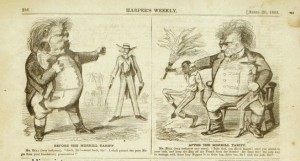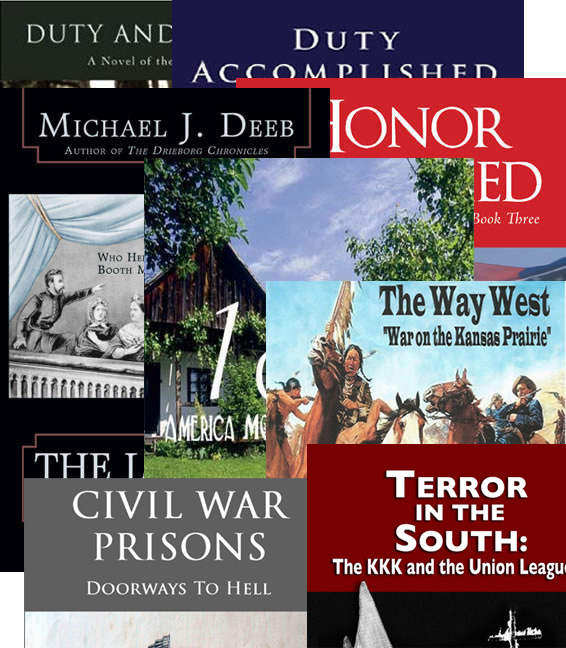Secession Spring: The Tariff War
 In March of 1861, the federal tariff again became part of the national discussion. From the earliest days of the Republic, Jefferson’s Democratic-Republican Party had supported a revenue tariff only. On the other hand, Hamilton’s Federalist Party, later the Whigs, later the Republicans, supported a protective tariff.
In March of 1861, the federal tariff again became part of the national discussion. From the earliest days of the Republic, Jefferson’s Democratic-Republican Party had supported a revenue tariff only. On the other hand, Hamilton’s Federalist Party, later the Whigs, later the Republicans, supported a protective tariff.
The Tariff of Abominations and Nullification Issues were settled during the Jackson administration. And, by 1846, a tariff structure satisfactory to both the industrial North and the agricultural South was in place. In 1857, despite bank failures in the North, Northern and Southern Democrats in the House and Senate lowered tariffs in response to a Treasury surplus and a desire to stimulate trade.
Nevertheless, the newly formed Republican Party and a few Northern Democrats supported the idea of higher tariffs to protect various industries in the North, particularly the iron industry in Pennsylvania and the textile industry of New England.
The emergence of the Republican Party in the North saw increased pressure to pass a protective tariff. During the 36th Congress the Republican majority in the House of Representatives passed a sharply increased tariff called, the Morrill Tariff. This bill was passed On May 10, 1860 by a vote of 105-64. The vote largely followed sectional lines:
All but 2 Northern Republicans voted for the bill, 89-2. The Southern vote was heavily against the protectionist measure, 39 – 1. There were 55 abstentions.
The bill was sent to the Senate where it was bottled up in the Democratic Party controlled Finance Committee. But that power was lost when seven Deep South states left the Union taking their Senators with them.
The Morrill Tariff was then signed into law by President Buchanan on March 2, 1861. On March 11, 1861 the Confederate Congress responded with a tariff bill instituting a much lower tariff for the Confederate States of America.
The scene was set for a tariff war.
More on the Tariff War later.


 A Great Read! I couldn’t put this book down once I got started. The detail was great and I really like the main character, Michael. Knowing that so much research went into this book made it exciting to read!
A Great Read! I couldn’t put this book down once I got started. The detail was great and I really like the main character, Michael. Knowing that so much research went into this book made it exciting to read!